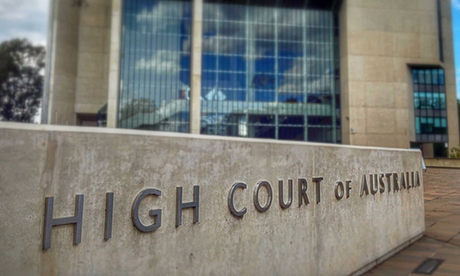Australia’s High Court ruled last week that the Catholic Church is not vicariously liable for institutional child sex abuse.
For the Church to bear vicarious liability, the priest would have to be an employee of the Church. Priests are not Church employees, the Court found.
The ruling shocked many survivors and their supporters. They want governments around the country to change the law.
Test case
In 2020, an abuse survivor from Victoria went to court arguing the Church was vicariously liable for sexual abuse he suffered at the hands of Fr Bryan Coffey who abused him at two family events in 1971.
Coffey was convicted of child sex offences against other children in the 1990s and has since died.
The Victorian court found the Church vicariously liable for Coffey’s offending. That decision was upheld even after the church appealed.
The Court said in both decisions that Coffey was not a Church employee, though he occupied a special place within the hierarchy of the Church, which gave rise to vicarious liability.
Most priests are neither employees, nor self-employed contractors. The relationship is pre-eminently of a spiritual character, a long-past court ruling stated.
Ruling retrograde and out-of-step
Last week the High Court found that, despite the Church’s role in directing and controlling Coffey’s parish activities, he was not an employee.
Vicarious liability is confined to employees, the Court explained.
Lawyer Judy Courtin declared it a day of mourning.
“It’s such a retrograde step, and the High Court actually had the choice to extend the principles of vicarious liability” she said.
“But instead, we say it has chosen to abandon victims and survivors of institutional abuse.”
The Australian Lawyers Association said the ruling was out-of-step with overseas practices which use a wider interpretation of vicarious liability.
“I am shocked because amongst the common law world, Australia is now on its own in not recognising activities akin to employment as giving rise to vicarious liability” the Association’s Andrew Morrison said.
“This is someone who is doing the work of the bishop and the diocese and, in those circumstances, why shouldn’t there be vicarious liability? And why should the Church escape responsibility on a highly technical argument?”
Morrison says the ruling lets other organisations dealing with children – like Scouts and sports bodies – off the hook too.
“Unless you can prove negligence, the principal organisation is going to be exempt from liability, and that’s very troubling” Morrison said.
Legislation change
In 2012, Australian Prime Minister Julia Gillard established the Royal Commission into Institutional Responses to Child Sexual Abuse.
She said she was “deeply concerned” about the High Court ruling.
Gillard wants Australia’s attorneys-general to urgently consider how to deliver justice to child abuse survivors.
Legal experts are warning the landmark decision could affect thousands of legal cases against religious orders nationwide.
Source
